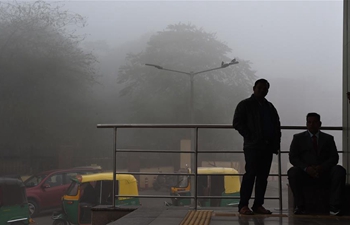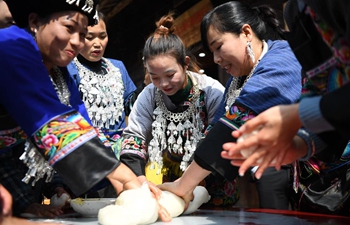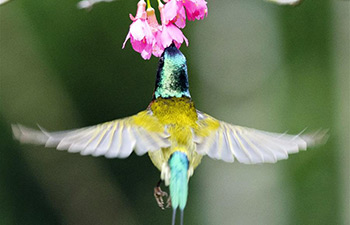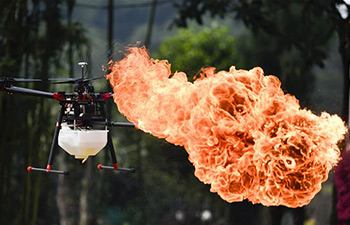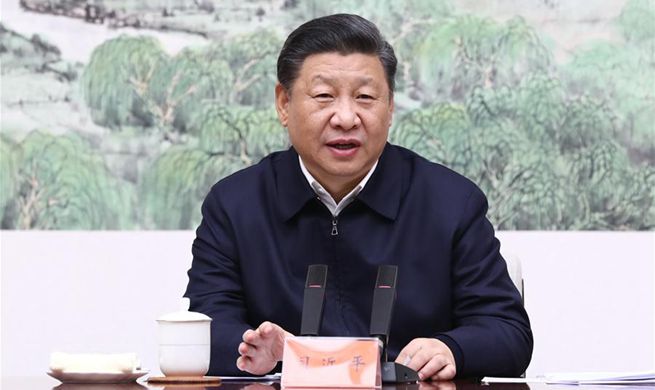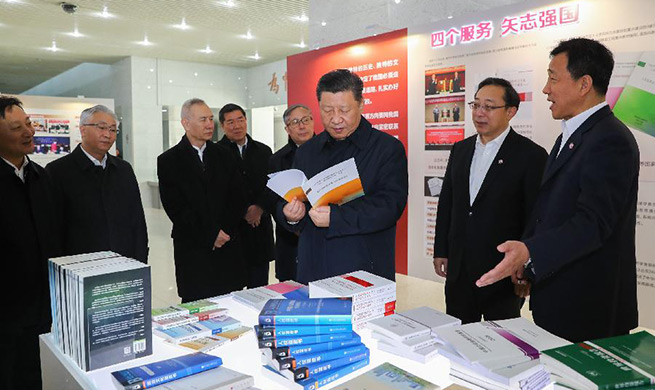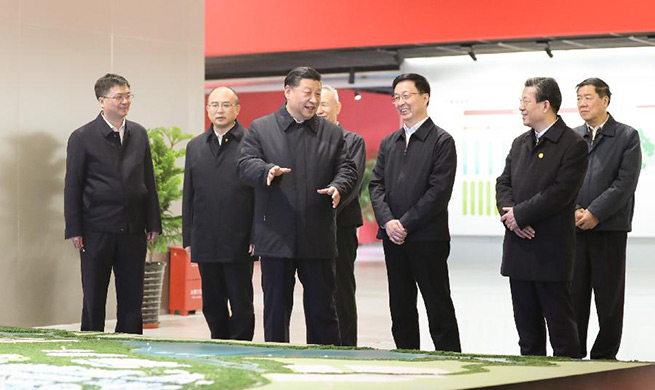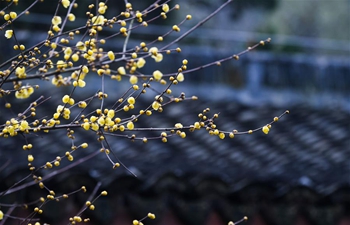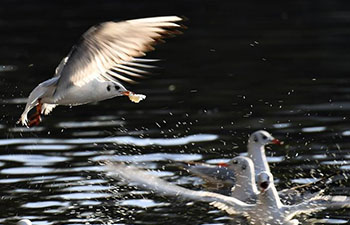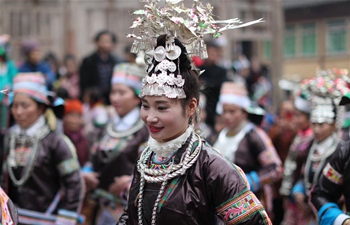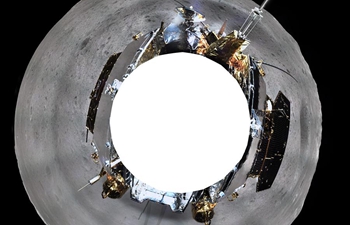DAR ES SALAAM, Jan. 18 (Xinhua) -- The UN refugee agency said on Friday it will reinforce its pre-screening procedures before any clothing is distributed to refugees.
The United Nations High Commissioner for Refugees (UNHCR) said in a statement that the decision to reinforce the pre-screening of clothing distributed to refugees was aimed at preventing a repetition of last year's scenario where it allowed the distribution of clothing items to refugees that were deemed inappropriate.
In the last quarter of last year, the UNHCR distributed some 1.5 million pieces of clothing received from a private donor to refugees in Nduta and Mtendeli camps in western Tanzania and to members of the host community living nearby in Kibondo and Kakonko districts in Kigoma region.
During the first mass distribution, which took place in the presence of local authorities, the UNHCR and its partners identified a number of donated clothing items that were deemed inappropriate, including some 1,900 pieces of camouflage-styled clothing for men and boys.
Since this type of clothing were not permitted for civilian use under Tanzanian law, the statement said, the UNHCR immediately removed all the unsuitable pieces and stored them securely.
"On Dec. 31, 2018, these unsuitable clothes were handed over to local authorities upon their request," the statement said.
In January, Tanzanian authorities launched an investigation, following media reports that these items were seized in Nduta and Mtendeli camps prior to their distribution to refugees.
"While waiting for the findings of the investigation, the UNHCR stands ready to support the government in its efforts to clarify the way these clothing items have been handled," the statement said.
The UNHCR "continues to work closely with the Tanzanian government and other partner organizations in providing international protection and humanitarian assistance to refugees and asylum-seekers in the country," the statement added.
Tanzania hosts more than 300,000 refugees and asylum-seekers, mostly from Burundi and the Democratic Republic of Congo.




